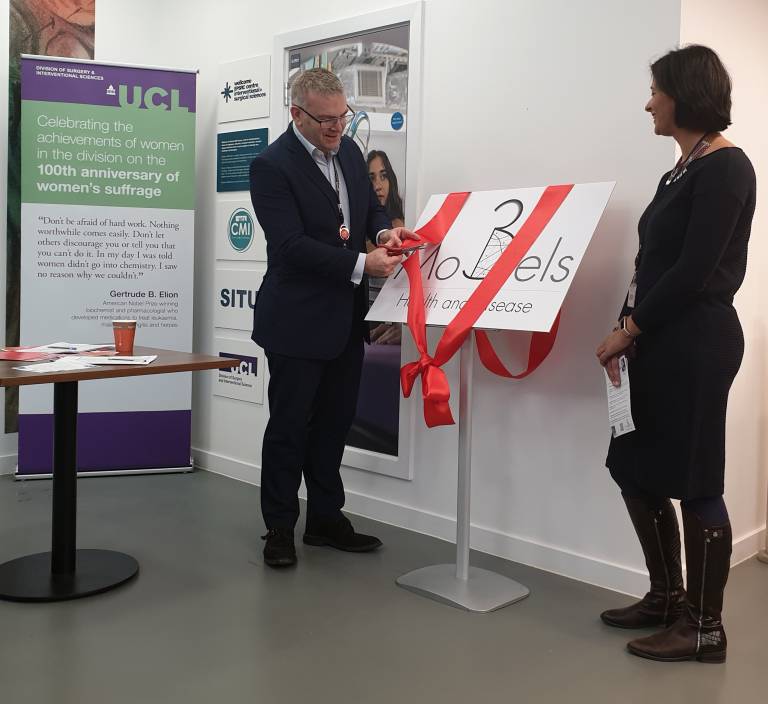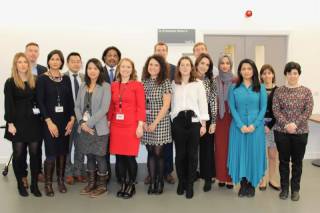Launch: Centre for 3D Models of Health and Disease
20 January 2020
On the 20th January 2020 the Centre for 3D Models of Health and Disease was officially launched at Charles Bell House (UCL). We used this opportunity as a TCES Net meeting in order to tell collaborators in the community about our work.

This centre is part of the Division of Surgery & Interventional Science at UCL and it gathers researchers working on a wide range of different tissues. The common aim is to engineer biomimetic models to study tissue biology and the impact of diseases on them. This event was not only the occasion to launch the centre but also to showcase the novel research in tissue-engineering that is carried out, providing opportunities for potential collaborations. The event was free to register and open to the public. We had a great turnout of around 85 attendees.
The agenda included oral and poster presentations from the PhD students of the centre who talked about their innovative research. Guests speakers from other institutes and organisations, such as Dr Adrian Biddle from QMUL and Dr Katie Bates from NC3Rs also presented.
There was a display of the unique, custom-built pieces of equipment that are used in the group. These included the bio-creep device which measures cell-mediated growth; a device that spins gels under centrifugal force to remove water in a liquid environment, and a culture force monitor which measures the tensile force generated by cells in a 3D environment. These displays gave the audience the opportunity to directly observe the devices that have been engineered in the group, making research more real and tangible. The morning session came to an end with Prof. Mark Emberton, Dean of the Faculty of Medical Sciences, who officially inaugurated the Centre for 3D Models of Health and Disease with the formal ribbon cutting.
After a morning full of interesting and inspiring talks, a full vegan lunch was served, in line with the new Green UCL policy and Veganuary initiative. During the lunch all the attendees had time for networking and visiting the research posters displayed. This was also a chance to speak to the representatives from Lonza at their stall, which kindly funded part of the event. The poster session chaired by Dr. Darren Player consisted of turbo talks (3 minutes presentation and 2 minutes for questions) delivered from the PhD students of the group (in order: Deniz Bakkalci, Jasmine Ho, Alessandra Grillo, Tania Choreno, Philip Barrett, Auxtine Micalet, Rallia-Iliana Velliou and Thomas Whitehead-Clarke). The presentations were quick and to the point, showcasing different topics such as cancer, muscular tissue regeneration, abdominal hernia and vascular computational modelling. The format was successful as the audience actively engaged with the students asking interesting questions about their projects and the students had the chance to practice their presentation skills in a friendly environment.
Overall the meeting was a success as almost 90 people attended, from UCL and other institutions. Organising this event took great effort which we hadn’t anticipated but was also rewarding as we received a lot of positive feedback from the attendees. It was also a great bonding activity for the members of the centre because we worked as a team both before and during the event making sure that everything ran smoothly. I would like to thank all the members of the new Centre for 3D Models of Health and Disease for the great effort put in place to organise and deliver the event and TCES for supporting us young researchers and students and giving us the chance to deliver our research.
Write up by Alessandra Grillo

 Close
Close

